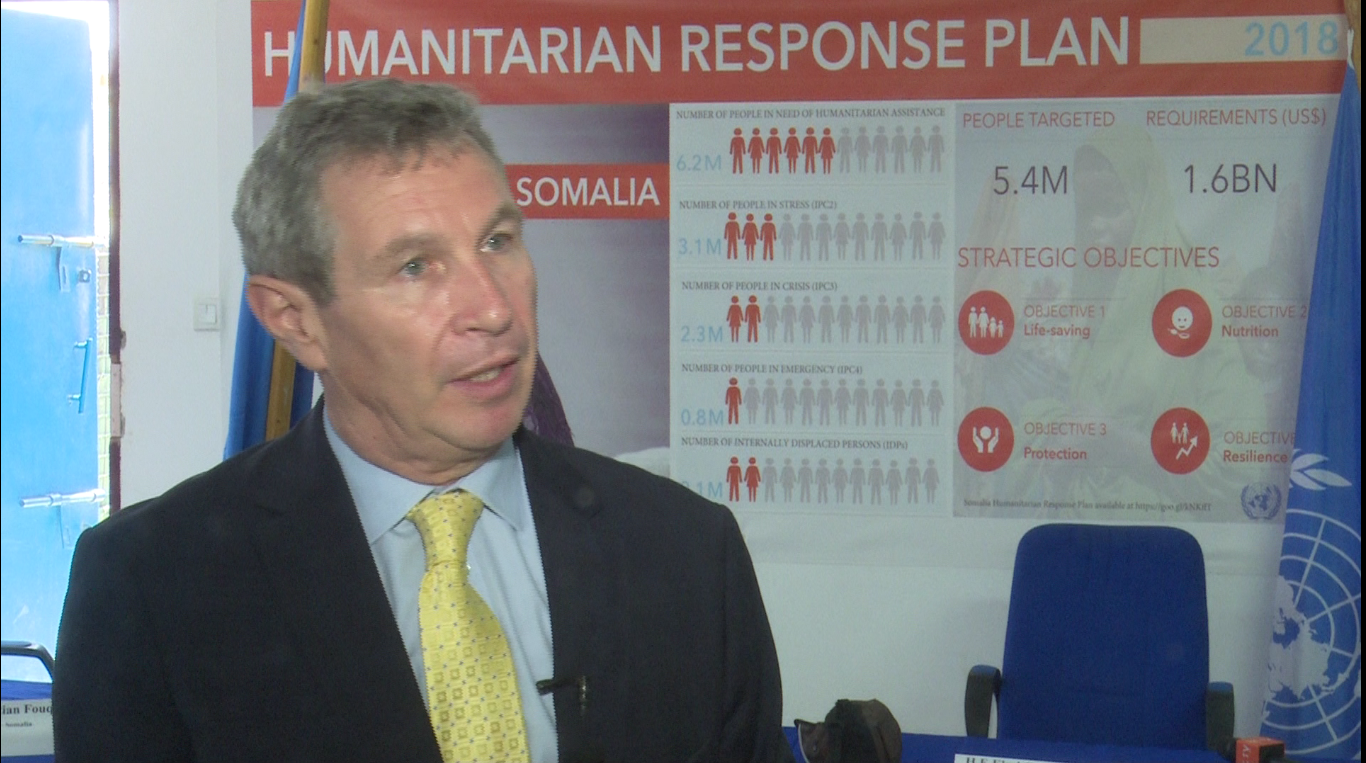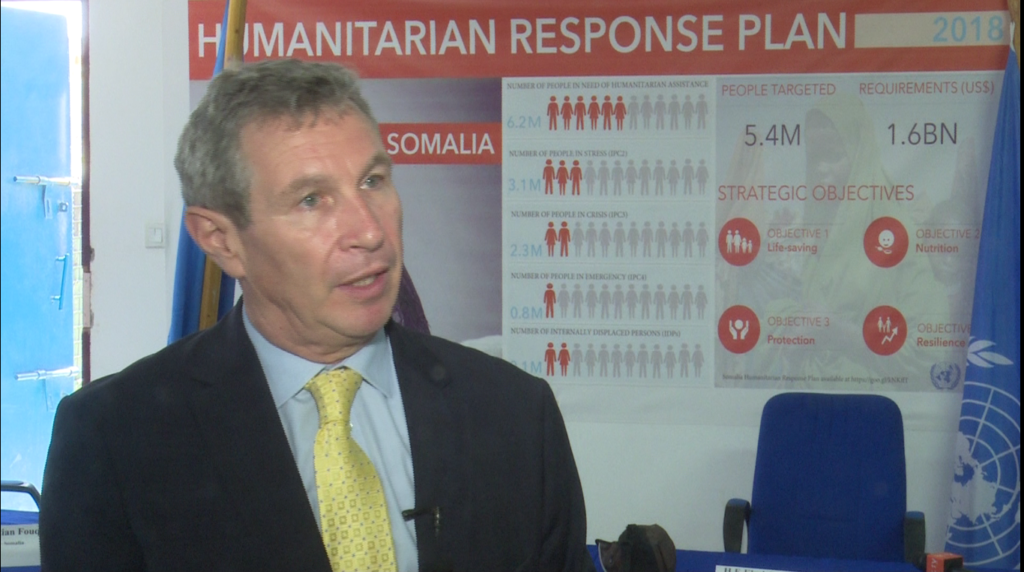Q and A: One on one with UN Deputy Representative in Somalia Peter de Clercq


Mr. Peter de Clercq is the current Deputy Special Representative of the Secretary-General for the United Nations Assistance Mission in Somalia (UNSOM), where he also serves as United Nations Resident Coordinator and Humanitarian Coordinator.
He spoke to Goobjoog News reporter after participating in a conference titled “Somali Humanitarian Response Plan” for the year 2018 held yesterday in Mogadishu.
Goobjoog News: What is the general plan of the UN humanitarian program for 2018 in Somalia?
The plan we presented today is not a UN plan. It’s a plan that has been developed in close corporation with the government not just at Mogadishu level but also at regional levels. So we worked very closely with all the federal member states as well to determine what is required in this year. We are asking for even more money than last year although of course it was very difficult for us to raise as much funding as we could in 2017. We raised about US$ 1.3 billion dollars but this year we asking for 1.6 billion because the needs are bigger. There are people who are very close to famine or very malnourished and have bigger needs than were in 2017. That’s the plan we are now presenting together with the government and the NGOs is much bigger. However, we are hopeful that we will be able to raise very significant funds because the world has not forgotten about Somalia.
The assistance that we are providing is a humanitarian assistance. It does not change the situation. It makes people only survive, makes them fed, makes them healthy because of health components, shelter is there, also education. Basically all these are short term needs.
At the same time we would be launching in a few days what we call a Resilience and Recovery Framework and that is a plan that the government has developed to rebuild Somalia, to make sure that future droughts will not result again in almost in a famine situation like we have now.
The second plan will focus on supporting agriculture, livestock and fisheries and to support also the infrastructure that is required in this country for people to resume their lives, to make a livelihood for themselves and to support their families and not be dependent on international aid.
Goobjoog News: What are your specific locations or towns in Somalia?
Of course there are many international targets as to the type of standards in the different sectors and we are using a model for us a national development plans which Somalia has a good one that was developed in 2016 and that sets the standards for what the population really needs, what Somalia will look like once the reconstruction process has been done. So it sets the specific standards for things like health and education. It deals with issues like internal displacement so IDPs are not seen only as people who need humanitarian assistance but people who need to be integrated into the cities of Somalia where we have many people displaced.
Mogadishu alone has 600,000 displaced people and they are actually citizens of Somalia. They shouldn’t be living in camps or in tents. They should live in proper houses and that’s the plan the national development covers. As I said we should go beyond humanitarian assistance in this country and the target we set are very much national targets. They have been determined by the government in close cooperation with the federal member states. So these are international standards but Somali ones and the government is pursuing with our support.
Goobjoog News: What was the evaluation outcome of your humanitarian programs for 2017 in Somalia?
In February, 2017 we launched a humanitarian act plan and we asked for the time US$ 1.5 billion that seemed a very difficult target but we found ourselves at the end of last year with US$ 1.3 billion of income and that’s unprecedented. We have not seen this type of fundraising in Somalia before. It was very positive and hopeful and as I said before, it shows the world has not forgotten Somalia and we are all hopeful that we will continue to raise funds necessary to cover humanitarian needs in this country for 2018.
Goobjoog News